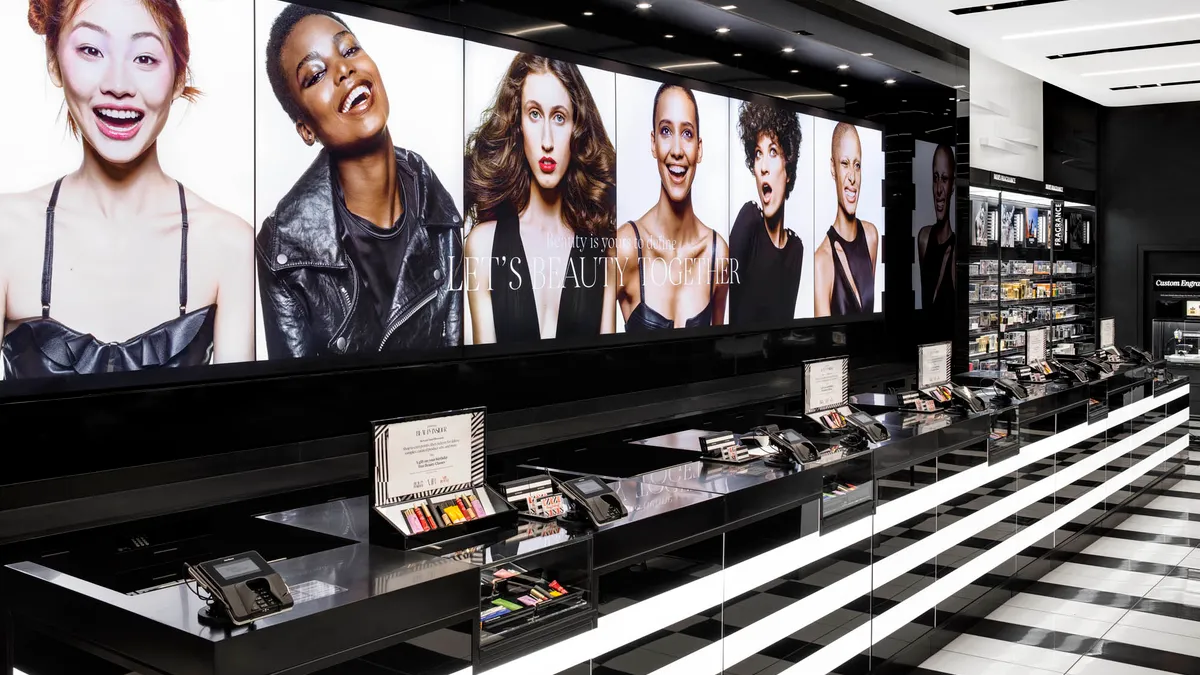Dive Brief:
- Beauty retail giant Sephora announced Thursday it will close its stores, distribution centers and corporate offices the morning of June 5 to hold an inclusion training workshop. The company said it wants to "begin a dialogue" with its more than 16,000 U.S. employees on the importance of diversity and inclusion to the organization, and is planning future training sessions, according to information shared with Retail Dive.
- Sephora also announced its new brand platform and tagline, "We Belong to Something Beautiful." The company said that later this summer and fall, it will launch a marketing campaign featuring different stories on "belonging and inclusion within the world of beauty."
- The company released the following statement as part of its new diversity and inclusion marketing initiative: "Sephora believes in championing all beauty, living with courage, and standing fearlessly together to celebrate our differences. We will never stop building a community where diversity is expected, self-expression is honored, all are welcomed, and you are included."
Dive Insight:
This is not Sephora's first diversity-and-inclusion-related move. In 2017, the company cast its own employees as models for a marketing campaign focused on diversity.
Its current plan may sound familiar for another reason. Starbucks held a similar all-staff, half-day anti-bias training session following a high-profile incident in which of one its employees called police on two African-American patrons whom she accused of tresspassing in a Philadelphia location. The company publicly took responsibility for the employee's actions, issued an apology to the two men and held the training session in an attempt to avoid future racially-charged incidents. Starbucks earned praise from experts for its steps, with some suggesting it created a benchmark by which all future employer responses will be measured.
The beauty space as a whole has also made moves to become more inclusive. Ulta became the exclusive retailer selling Morphe's James Charles pallette, and last year launched a campaign to highlight diversity in beauty. About a year ago, Target unveiled eight new cosmetic brands, which included more than 150 products designed for medium to dark skin tones. This came one year after Rihanna's inclusive Fenty beauty line launched, and influenced the sector. Putting an emphasis on diversity and inclusion could bode well for brands with a large Gen Z and millennial audience — a demographic that tends to favor brands that incorporate it in their marketing and advertising.
While mass closures won't be an option for all businesses, it's more about signaling a willingness to take an issue seriously, and putting resources into finding a solution, Wharton School of Business professor Maurice Schweitzer previously told sister publication HR Dive.
Moreover, addressing racism and discrimination as an employer is a continuous process, but under HR's leadership, companies can build cultures of inclusion to ensure all workers feel valued.
Caroline Jansen contributed to this report.
















